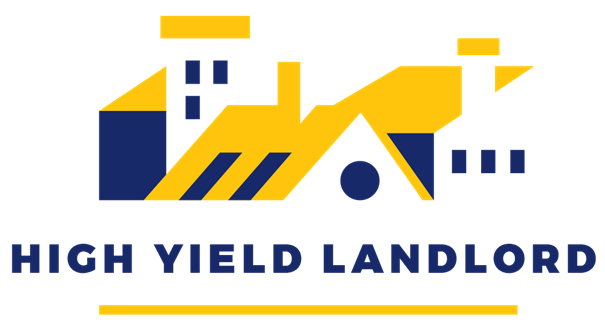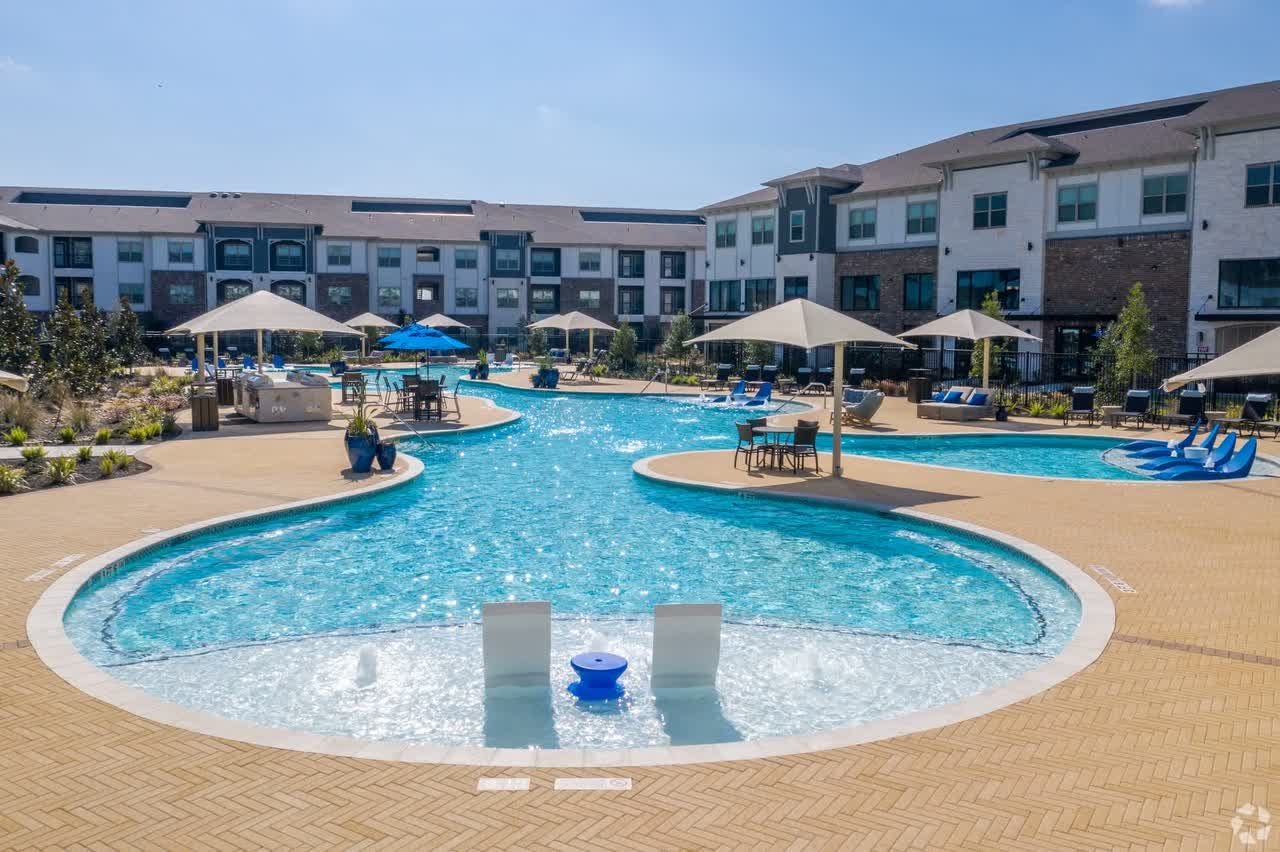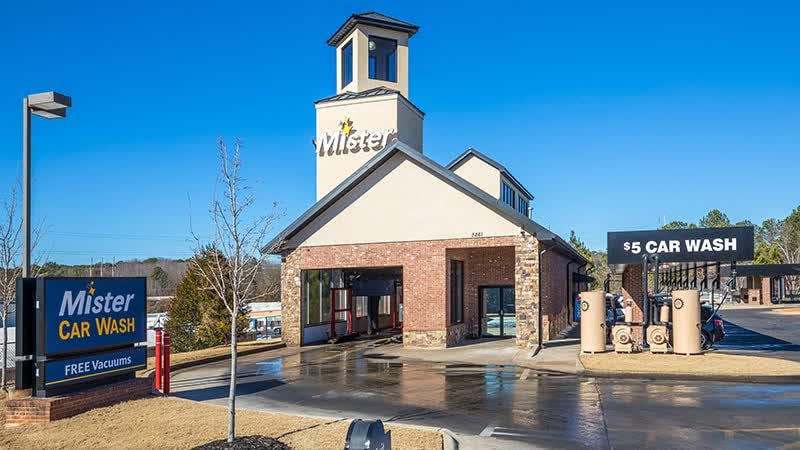Our Single Largest Holding Is Essential Properties Realty Trust, Here's Why
Please note that this is a free article of High Yield Landlord. If you find it valuable, consider joining our service for a 2-week free trial. You'll gain immediate access to my entire REIT portfolio, real-time trade alerts, exclusive REIT CEO interviews, and much more.
Our Single Largest Holding Is Essential Properties Realty Trust, Here's Why (Q4 2023 Update)
For the past 4 years, our largest position has consistently been a net lease REIT that specializes in middle-market companies.
For the first ~2 years, it was a REIT called STORE Capital (STOR), and later as it got bought out, we replaced it with its close peer, Essential Properties Realty Trust (EPRT).
During most times, this one investment has represented about 12% of our Core Portfolio, which is more than our 8 smallest positions combined.
This has led many of you to ask me:
Why invest so heavily in this one REIT?
This question is now coming up even more often because EPRT has greatly outperformed the rest of the REIT market in recent years, and it would seem that its upside would be limited from here:
Priced at 14x FFO, EPRT isn't cheap or expensive. It is trading much closer to its fair value than some of our other holdings.
So again, why invest so much in EPRT then?
The answer is simple.
We think that it is an ideal anchor to our portfolio because its business model is very likely to generate above-average returns with below-average risk over the long run.
It won't be the most rewarding, but it is one of the most likely to earn us alpha-rich returns over long periods.
Therefore, it makes sense for us to hold a large position as it will help us reach our objective without any major risk of being wrong.
Because let's face it.
All REITs present risks and if you are going to follow a contrarian approach and invest in smaller REITs that are heavily discounted, you will occasionally suffer big losses as risk factors play out.
EPRT helps us mitigate the impact of those losses and stabilize our Core Portfolio.
Then the next question should be:
What makes us so confident in that EPRT will outperform over the long run?
This comes down to its unique business model. We recently interviewed Chris Volk, who has founded many REITs, and he essentially told us that EPRT has one of the best business models of any REIT.
Let's start here with some basics.
99% of real estate investors are targeting traditional properties which include single-family rentals, apartment communities, industrial properties, strip centers, and office buildings.
As a result, there is a lot of competition for these property investments.
A desirable apartment community may get the interest of 100s of different investors before it is sold and as a result, the bidding process is typically very competitive and this leads to higher property prices and lower cap rates.
EPRT recognizes this issue and seeks to earn better returns by targeting specialty assets that get far less attention from investors.
This includes things like car washes, dental clinics, and early childhood education centers.
Most of its investments are service and/or experience-oriented net lease properties that are leased to smaller-middle market tenants.
These properties attract very little interest from most investors and as a result, EPRT is able to get much higher cap rates and better lease terms that result in superior risk-adjusted returns over time.
Let's illustrate this with a comparison.
Good apartment communities will today typically sell at a ~5% cap rate. They will grow their rents over time, but this growth is cyclical and the landlord will also need to heavily reinvest in the property to keep it desirable. Most time, REITs that target these properties will also struggle to earn a spread over their cost of capital because cap rates are so low and this limits their ability to grow externally.
In comparison, EPRT will commonly buy car washes at an ~8% cap rate. It will then structure 15-20 year long leases with 2% annual rent escalations and the tenant will be responsible for all property expenses, including maintenance. And since EPRT's cost of capital is inferior to the cap rates of its new acquisitions, it is consistently able to raise new capital to buy additional properties at a large positive spread.
And here are the results: EPRT has massively outperformed the average of the REIT sector since going public and I don't see why this outperformance would end any time soon. It simply has a better business model that creates more value for its shareholders:

It is able to consistently provide its shareholders:
An above-average dividend yield
And an above-average growth rate
Which combined, result in superior total returns
Why aren't more investors then following the same approach?
It simply isn't possible for the vast majority of investors because it requires unique skills, relationships, and vast amounts of capital to diversify properly.
If you think of your typical real estate investor, most of them are high-net-worth individuals, family offices, and small private real estate funds. They will manage somewhere between $5 and $100 million and have just one or a few employees to implement their strategy, and this comes with some limitations.
Firstly, you should note that there is no brokerage market for the assets that EPRT is targeting. Instead, EPRT has a team of people that's cold-calling owners to build relationships and offer sale and leaseback solutions. Most investors wouldn't be able to do that.
Secondly, even if you could, you probably wouldn't want to target properties that are leased to smaller middle-market tenants if you are just going to own 3-10 properties because that's not enough to diversify properly. This explains why most investors will instead focus on traditional properties like single-family rentals, apartment communities, etc. and if they target net lease properties, then they will make sure to at least have an investment-grade rated tenant.
As a result, EPRT does not have much competition and it can consistently derive alpha-rich returns by repeating its strategy.
This brings us to its latest results and guidance for 2024.
Last year, EPRT again beat the vast majority of REITs and grew its AFFO per share by 8%:
An 8% growth rate coupled with a 4.7% dividend yield gets you to 12.7% annual total returns even without any upside from multiple expansion.
That's well above average for a REIT, especially in this environment as most REITs are battling with rising interest expense, oversupply, or both.
And I think that EPRT can keep this going.
They won't grow as fast as they did in 2023 every year, but they are likely to keep growing faster than most REITs over time.
That's because they enjoy both: superior internal and external growth prospects:
1) Predictable Internal Growth:
EPRT has 14-year-long leases on average and they include 1.5% annual rent escalations. That may not seem like much, but it really adds up over time because this rent growth is highly consistent and does not require any additional investment from EPRT. As a reminder, the tenants are responsible for all property expenses and maintenance. Moreover, these days, it is getting ~2% annual rent escalations on its new leases so as it keeps growing, its average escalators will likely expand closer to 2% over time.
Moreover, EPRT also retains 36% of its cash flow to reinvest in growth, which is quite significant.
Finally, EPRT has been very successful at growing accretively by simply recycling capital from one property to another. Every year, it will sell some assets, typically at a 6-6.5% cap rate, earning a nice gain, and that then gets reinvested at closer to an 8% cap rate.
All in all, when you factor in the leverage, they can consistently grow by about ~4% each year without even accounting for any external growth.
That already gets you to near 9% annual total returns.
2) Strong Position to Drive External Growth:
But there's still a gap between the 4% growth rate discussed above and the 8% that they achieved in 2023.
The difference comes from external growth which is when you issue new shares and raise new debt to acquire additional properties at a positive spread.
This only works if your cost of capital is inferior to the cap rates of your targeted properties, and this is the case here.
EPRT is today priced at about 14x its AFFO, which is the equivalent of a ~7% AFFO yield. EPRT can then also access some debt at a ~6% interest rate, which results in a 6.6% weighted average cost of capital at a 40% LTV.
Yet, EPRT Is acquiring properties at an 8% cap rate. So far into 2024, they are getting even a bit higher cap rates than 8% according to their most recent conference call.
This means that they are earning a ~150 basis point spread, which really moves the needle for them, especially since they are still a fairly small REIT with a $4 billion market cap.
Today, they also have historically little debt. Their current Debt-to-EBITA is the lowest of any net lease REITs at 4x and they have no debt maturities till 2027. This means that they could increase leverage going forward to accelerate growth. Here is what the management said on their most recent conference call:
"If we were to choose a range that we thought was reasonable in terms of leverage it would be 4.5x to 5.5x. So if you think about that and we're sitting at 4x now, we've got a fair amount of runway to go before we ever even kind of step into that range." [emphasis added]
That puts them in a strong position to target further external growth in 2024.
Even then, EPRT guided for "just" 5% AFFO per share this year. That's below average for EPRT, but it is still amongst the best growth rates in its peer group.
But you need to consider here that EPRT has a history of underpromising and overdelivering. Since going public, they have beat their quarterly FFO expectations in every quarter except for one if you exclude 2020, which was unusual due to the pandemic:
And again this year, it appears that their guidance is very conservative.
This guidance does not require them to issue any additional equity in 2024 and it also includes conservative rent loss and credit loss assumptions, which they typically don't need in the end.
Therefore, it seems likely that they will again beat their guidance in 2024, especially as interest rates return to lower levels, their cost of capital goes down, and their spreads expand further.
Assuming they reach a 6% growth rate in 2024, that would result in a near 11% total return when including the dividend, and that's assuming zero upside from repricing. As interest rates are cut, I expect its multiple to also expand a bit, resulting in another 15% upside on top of that, and assuming it takes three years for this upside to be unlocked, you would earn roughly 15% average annual total returns going forward.
That's not the highest return that you will find in the REIT sector, but it is still a very strong return, especially coming from such a consistent and predictable REIT.
Closing Note
EPRT's 2023 results and 2024 guidance are good reminders of why we are investing so heavily in this REIT.
We think that it has a clear and predictable path to generating 10%+ annual total returns with below-average risk and that's a very attractive proposition for us.
As long as this remains true, we expect to maintain it as the largest holding of our Core Portfolio. The large position size moves the needle for us in terms of performance and helps us mitigate the impact of the occasional losses that we will suffer on some of our smaller and riskier holdings.
Finally, please note that this is a free article from High Yield Landlord. If you found it valuable, consider joining our service for a 2-week free trial. You'll gain immediate access to my entire REIT portfolio, real-time trade alerts, exclusive REIT CEO interviews, and much more. We are the largest and highest-rated REIT investment newsletter online, with over 2,000 paid members and more than 500 five-star reviews.
We spend 1000s of hours and over $100,000 per year researching the market for the most profitable investment opportunities and share the results with you at a tiny fraction of the cost.
Get started today - the first 2 weeks are on us:
Sincerely,
Jussi Askola & Austin Rogers










